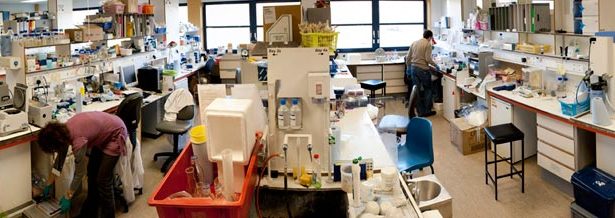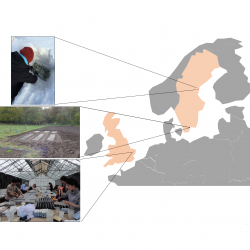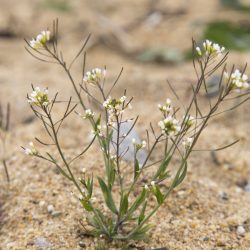Natural variation

Using QTL analysis the Dean lab have identified that non-coding single-nucleotide polymorphisms (SNPs) at the FLC locus account for a large proportion of the natural variation in the vernalization response.
Mechanistic analysis of how these SNPs influence FLC silencing has revealed the long-term maintenance of the silenced state as an additional step in the sequence of events.
To understand the ecological significance of the SNPs, the lab analysed their influence on the vernalization response in native environmental conditions.
With a great deal of help from Dr Svante Holm they conducted field experiments at three field sites – one near the extreme north end of the Arabidopsis thaliana range in the High Coast region of North Sweden, one in South Sweden near Ullstorp and one in Norwich (in an unlit, unheated greenhouse so they could incorporate transgenic material) over multiple years, when autumn temperatures were very different.
The field analysis enabled us to identify the major drivers of fluctuating temperature-dependent FLC silencing. The lab found the non-coding FLC SNPs predominantly affect the starting and early phases of FLC silencing and this translates into a complicated interplay between autumnal conditions and flowering time.
The Dean lab are continuing to dissect how the SNPs in the multiple FLC haplotypes mechanistically affect quantitative FLC expression and the epigenetic switching mechanism.


